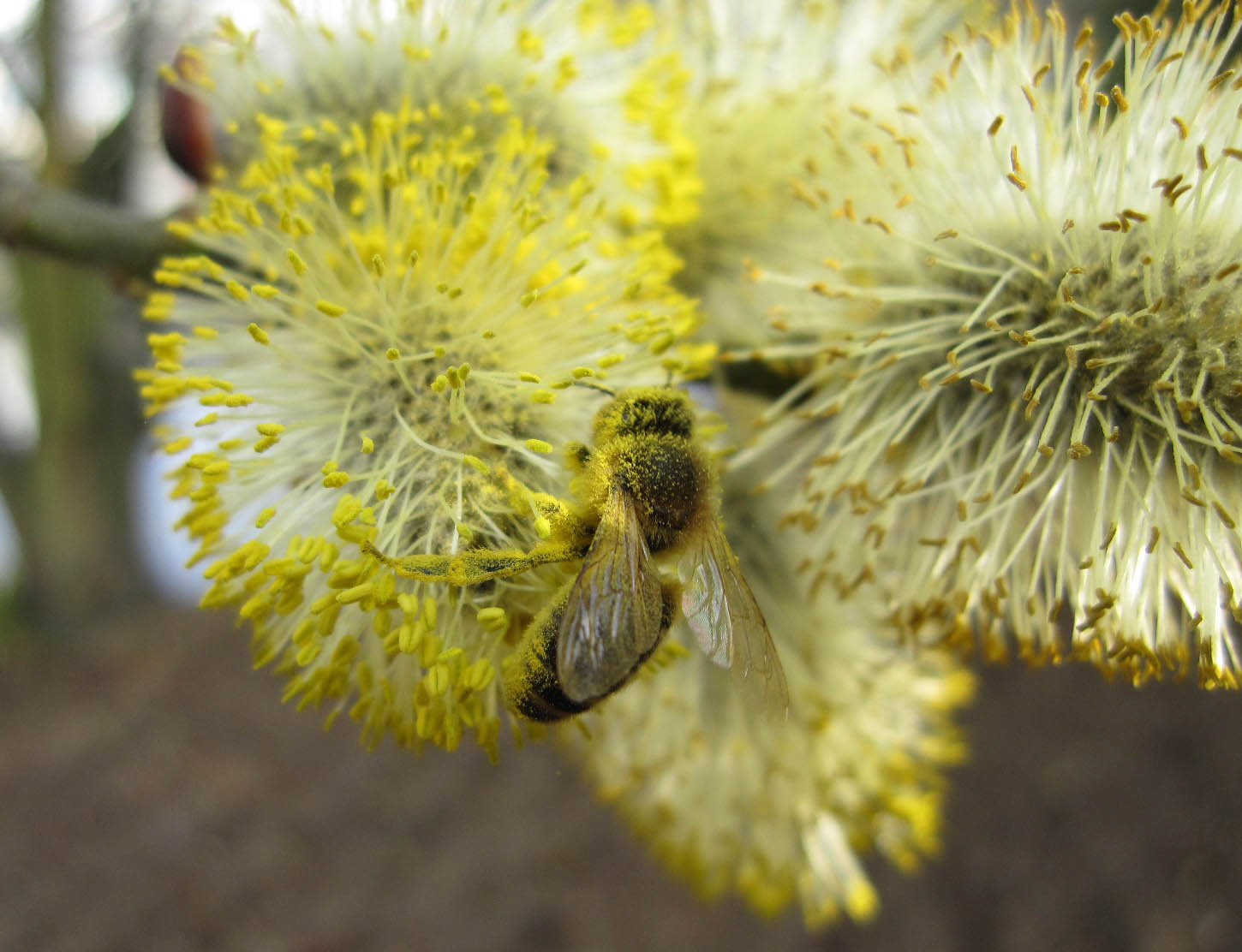
Lots of sunshine and warmer weather means there is a buzz in the air, as spring finally arrives. The honey bees (Apis mellifera), here at The National Archives can now be seen collecting pollen and nectar from our bee friendly plants. I took the photo on the right last week on a sunny afternoon and the willow was alive with honey bees and bumble bees too.
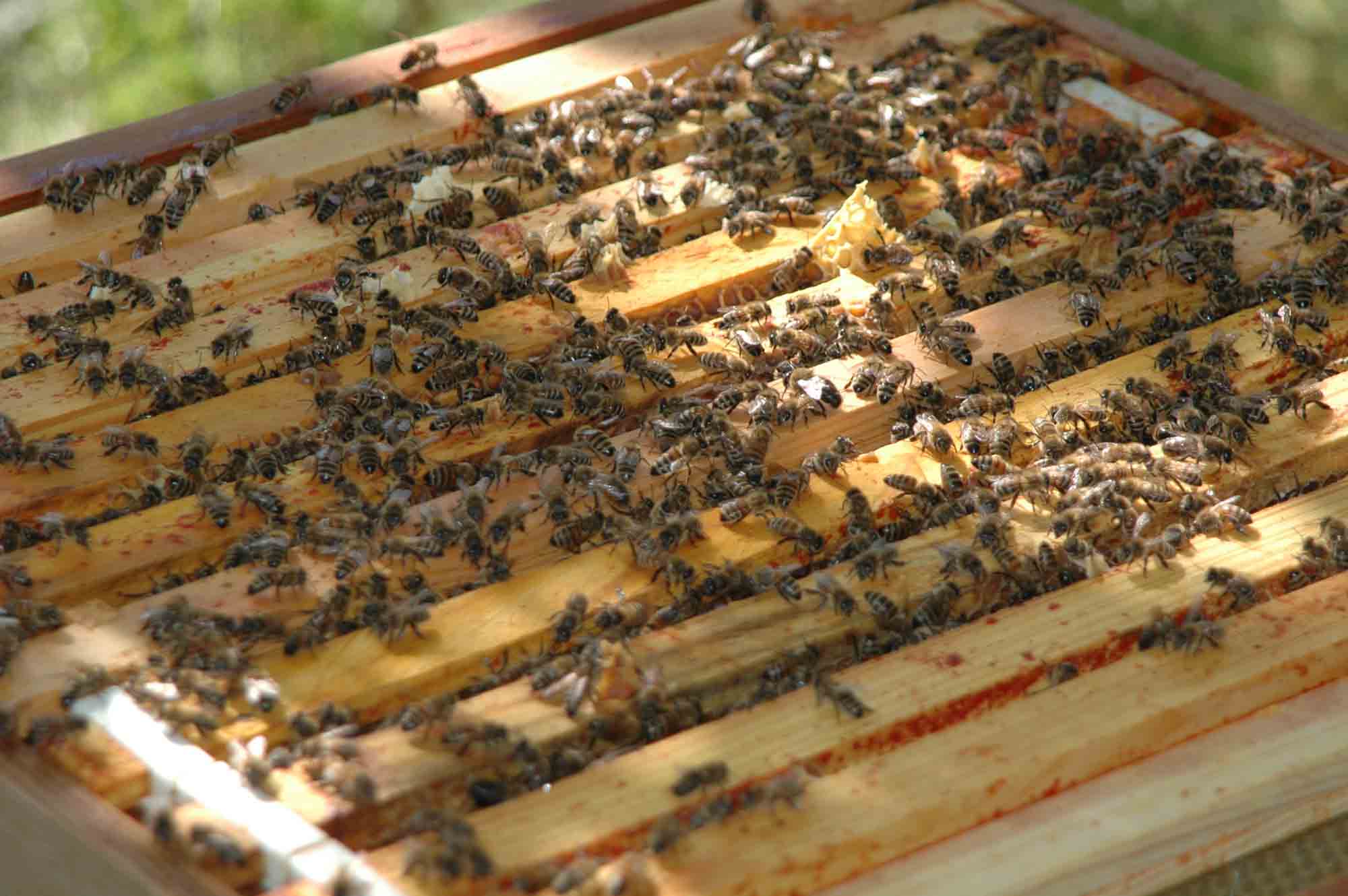
In May 2010 honey bees were first introduced as part of the Biodiversity project at The National Archives, the idea was based on a number of suggestions from staff. Back then we started from scratch, this included assembling the hives and introducing honey bees that would suit the environment in which they were to be kept. This meant that they needed to be socially acceptable bees, you may laugh but this is true! So we selected Buckfast Abbey Honey bees, bred by Brother Adam at Buckfast Abbey in Devon to become very gentle honeybees – although like all honey bees they will still sting, they are bred to have a low sting instinct.
Last year as Dennis, our beekeeper, and the honey bees settled in, staff at the Archives became more aware and some even came along during our Biodiversity Day to ‘meet the beekeeper’…
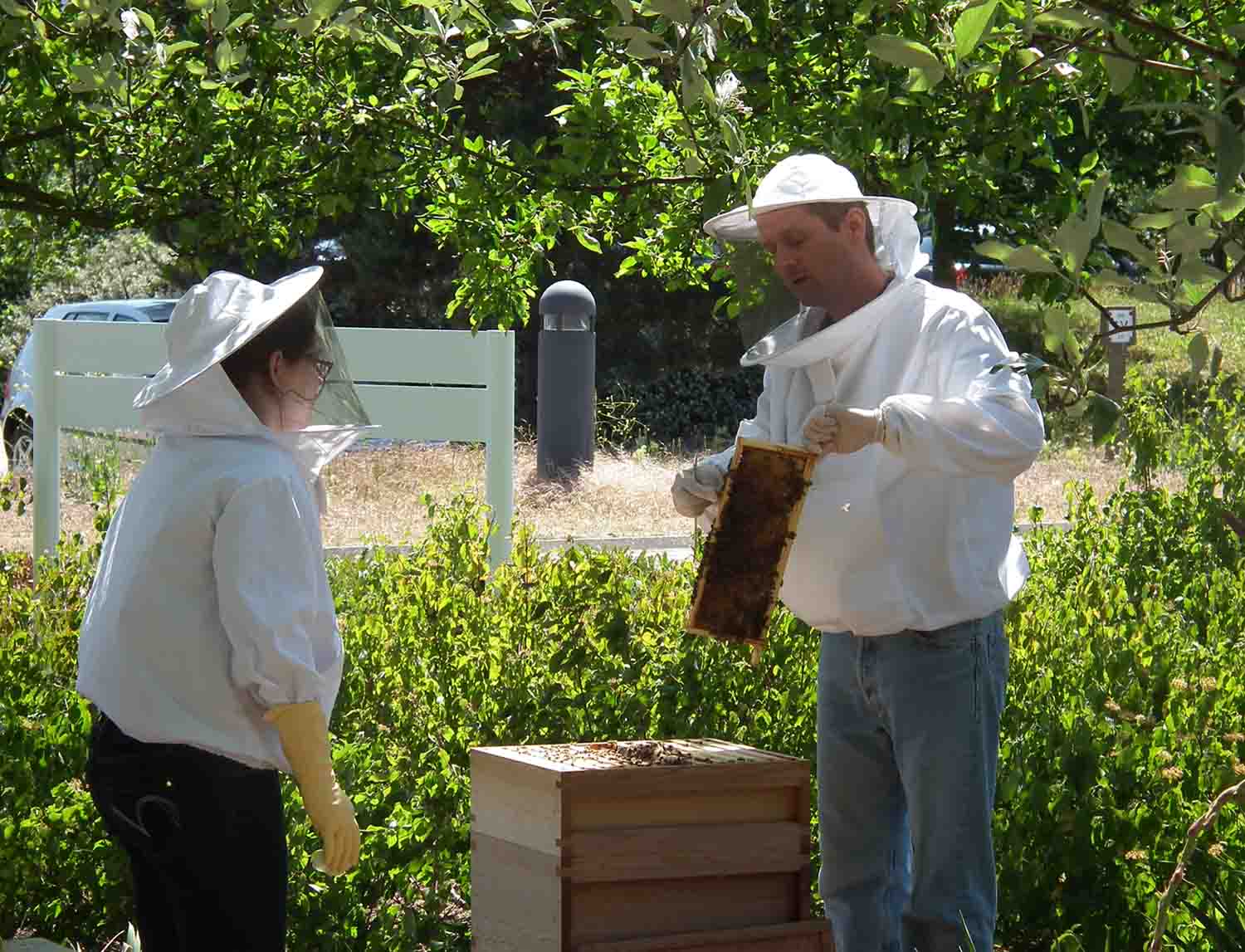 In the image on the left, a member of staff is learning first hand some of the skills of beekeeping. Although the idea for keeping honeybees at The National Archives was a way of ensuring that we were able to do something toward their survival, I very much enjoy the by-product (the honey produced by the bees), it was very dark and very tasty.
In the image on the left, a member of staff is learning first hand some of the skills of beekeeping. Although the idea for keeping honeybees at The National Archives was a way of ensuring that we were able to do something toward their survival, I very much enjoy the by-product (the honey produced by the bees), it was very dark and very tasty.
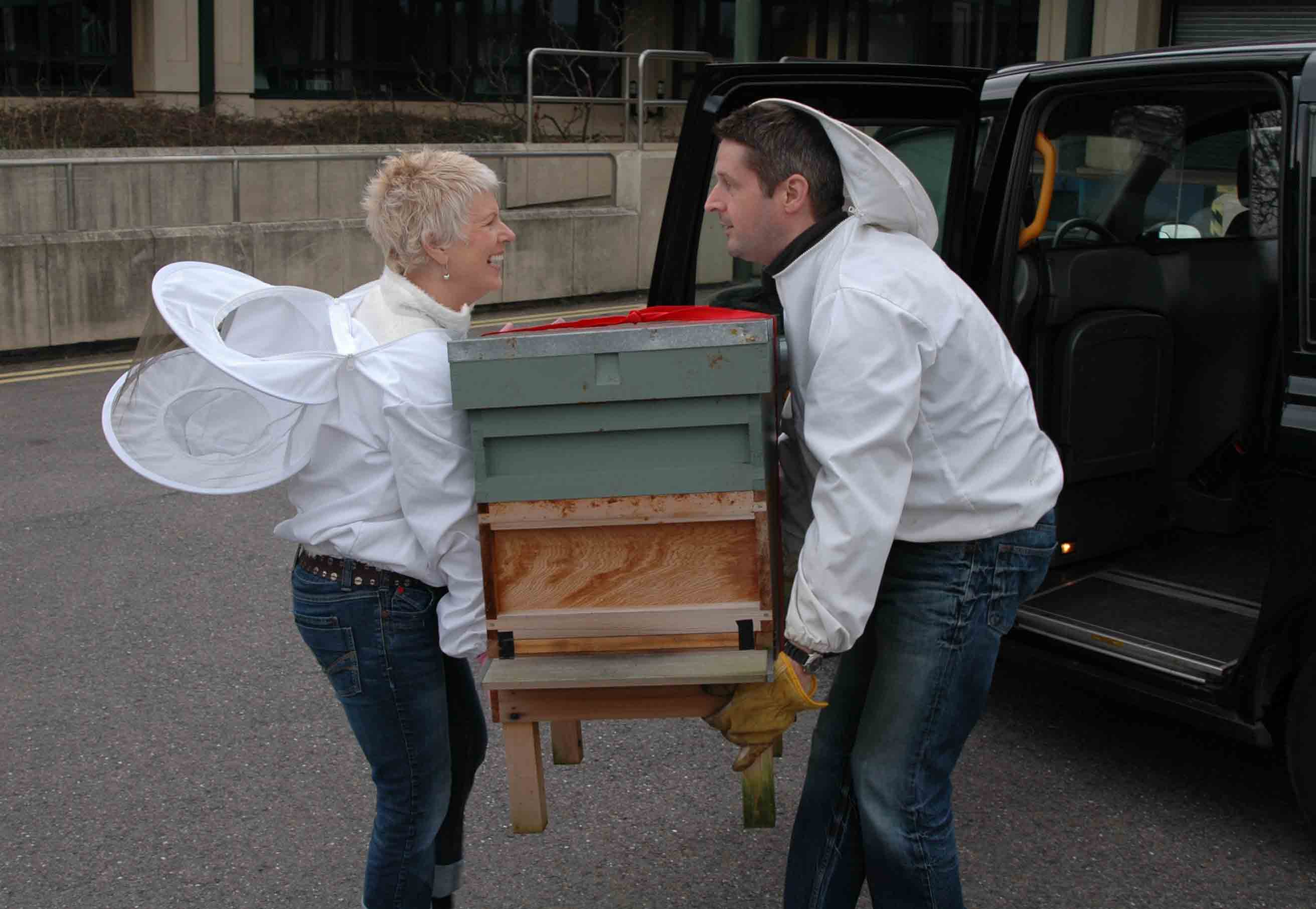 This year Dennis has already done quite a bit of work in preparation for 2012. I can be seen here with Dennis moving one of the hives that were overwintered in the back garden. It was quite difficult, but fun trying not to drop the hive as we carried it together, imagine all of those bees escaping! So much concentration and team work was called for.
This year Dennis has already done quite a bit of work in preparation for 2012. I can be seen here with Dennis moving one of the hives that were overwintered in the back garden. It was quite difficult, but fun trying not to drop the hive as we carried it together, imagine all of those bees escaping! So much concentration and team work was called for.
There is a lot of work that goes into keeping bees and in my blog I will do my best to keep you all up to date throughout the coming months. Apart from the honey bees, there are many other bees that visit the grounds at The National Archives. All are important as they all polinate the plants that surround us all and enrich our environment.
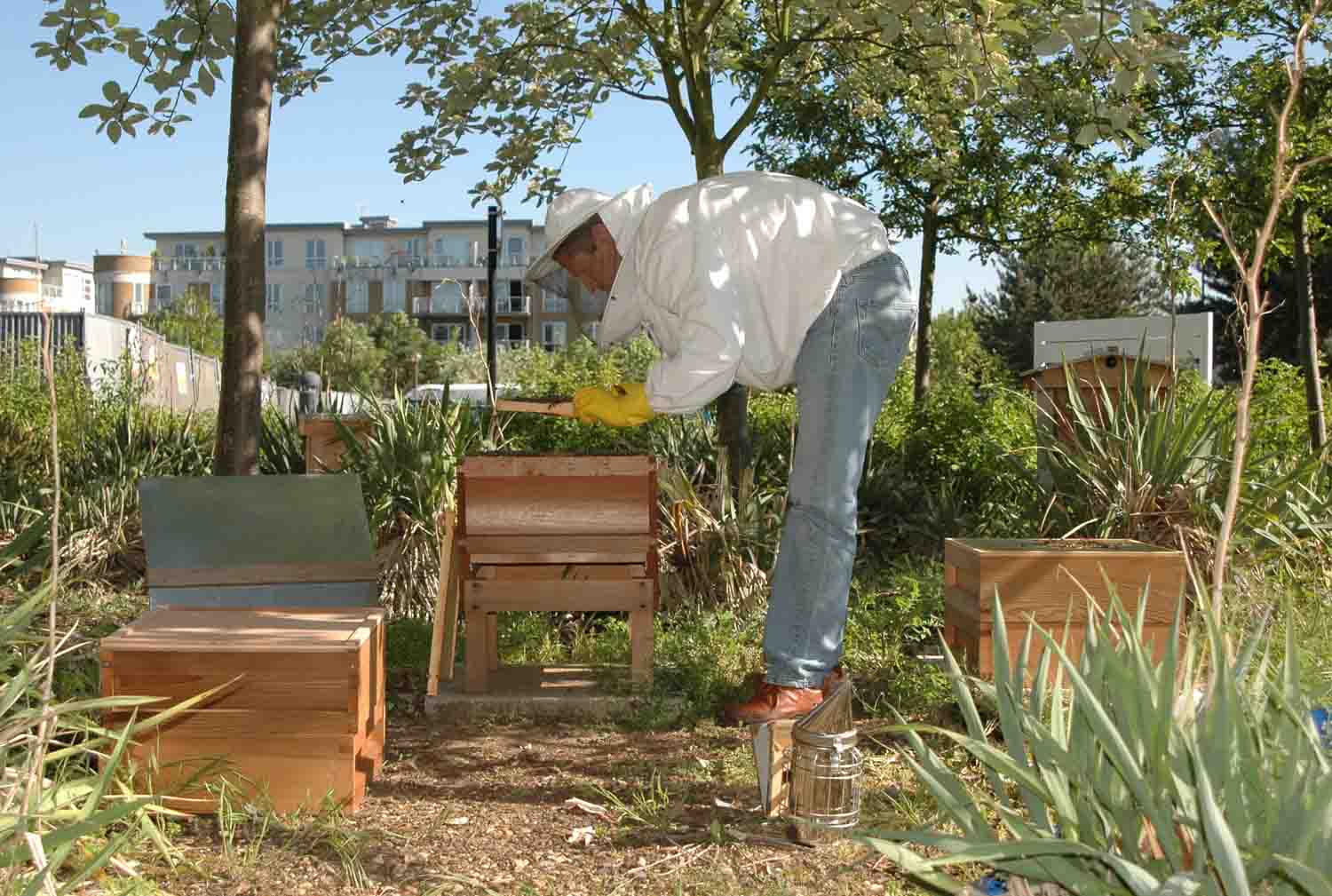
We hope that this year we get some solitary bees in the various bee hotels we have on site. If you have any questions about beekeeping here at The National Archives, please do ask in the comments below.